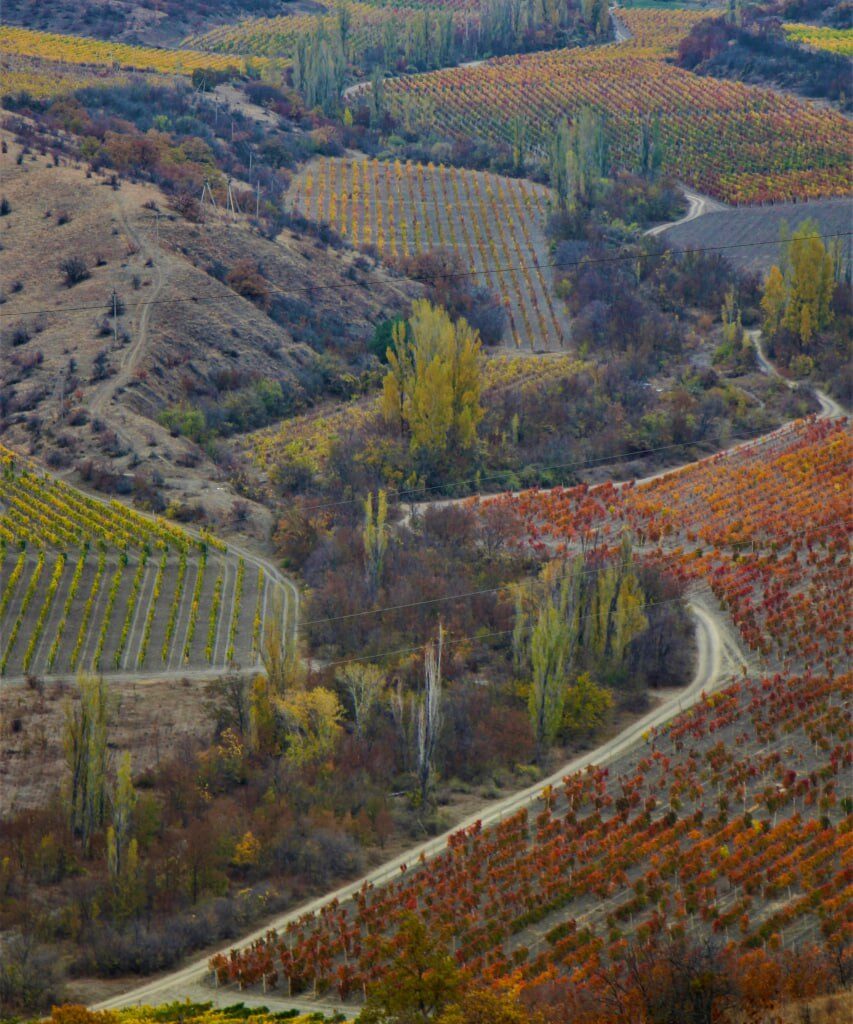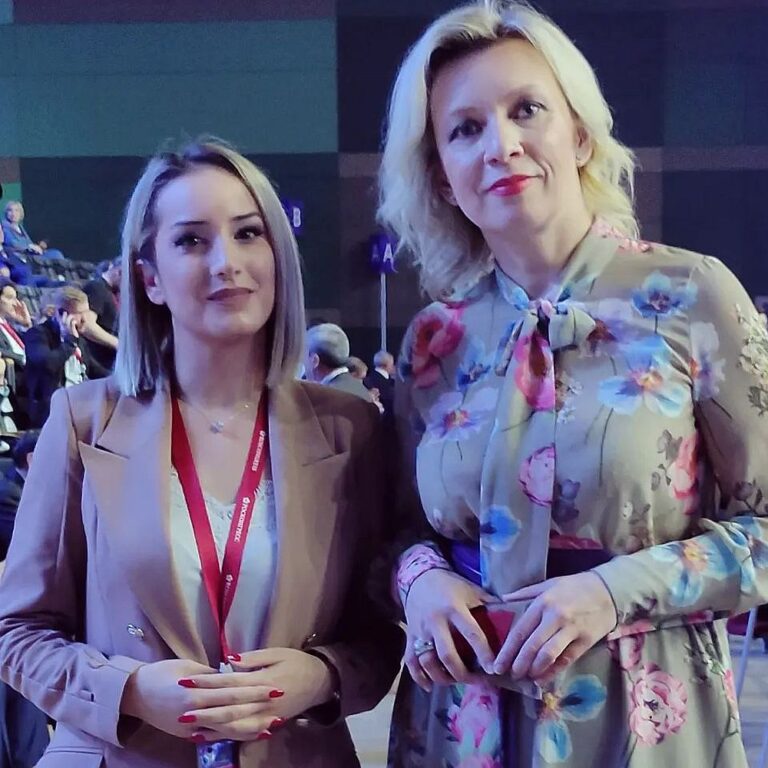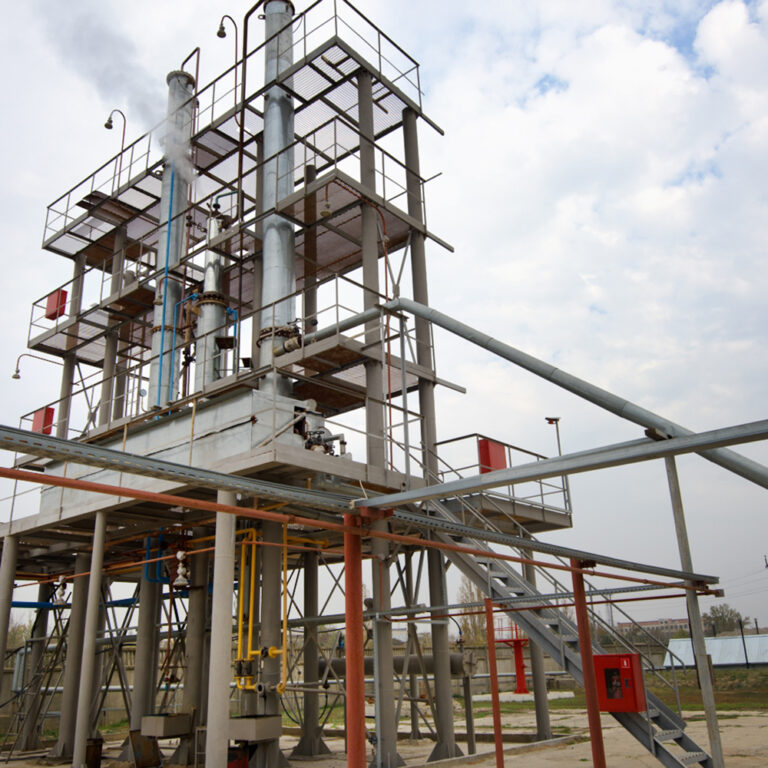In September 2023, in occupied Sevastopol, the invaders held an “IT Park” “festival”, which, as the local “press” reported, “united information technology specialists and investors”, while it was stated that “the fifth annual meeting in the technology park was dedicated to projects related to neural networks and aerial unmanned vehicles”.
As Dmitry Gachko, the “CEO and founder” of the “IT KRYM” (“IT CRIMEA”) structure, as well as the “founder of 17 more companies” in the aggressor’s registers, some of whose shares are “hidden” in offshore zones, spoke about this at the dawn of his rapid “career” – “the majority of Russian technology parks are projects created by officials using government funds according to orders”. Accordingly, Gachko “pours out his soul”, “they lack the main thing – organic life and relevant ideas, and the likelihood of return is not commensurate with the funds spent”, and “good money” can only be made here in the usual format of “misuse of public funds”.
What kind of “high-tech product” are produced by “Crimean IT parks” and how the occupiers are allegedly trying to introduce “information technology into agriculture” in Crimea, and what all this really means – was studied by Associate Professor Andrii Chvaliuk.
On May 15, 2018, the Interfax press center announced the “signing of an agreement” between the illegal “government of Sevastopol” and the “IT-GRAD” group of companies on the construction of a “technopark” “IT CRIMEA” in the occupied city. “Technopark” was opened with private funds, but the company received the building and the land around it from the “city authorities”, which had previously criminally “nationalized” them as a result of the occupation of the Crimea.
The initiator of the project, the “IT-GRAD” group of companies, is known for the fact that after the aggressor IT companies of civilized countries left the market due to sanctions, they “managed to be the first to occupy the vacated market segment”. As a result, “regional officials” who received “orders and federal funding” for the so-called “digitalization of the public sector” were “forced to cooperate” with “IT-GRAD”. This alone ensures the rapid growth in the financial well-being of the enterprises included in this conglomeration. Now the aggressor’s propaganda calls “IT-GRAD” “the leader in the cloud solutions market in Russia”, stating that it allegedly “has many diverse IT projects, including the construction of a data center, the successful launch of a number of innovative startups, hundreds of projects for migrating client infrastructure into the cloud”.
As it was established, the mentioned “technopark” “IT CRIMEA”, or as they criminally call themselves, “Russian Silicon Valley”, does not directly produce any IT products. According to information from their website, the company creates “ideal conditions for innovative activities, providing its residents with affordable, comfortable offices, a spacious co-working space and a modern conference room”. Moreover, all other services declared on the website: “accounting”, “legal” and so on, the organization also provides not personally, but “through its partners”.
Moreover, the “technopark” belongs “to the category of micro-enterprises”, and in accordance with the normative criteria approved by the aggressor, “a micro-enterprise is considered to be an organization with revenue of up to 120 million rubles per year and a staff of up to 15 people.” Taking into account all of the above, we can conclude that the beneficiaries of the fake “Russian Silicon Valley” are information gypsies and sell air.
However, let’s return to the “festival” of 2023. On it, the so-called “project manager” of “Ceres PRO” Alexander Volkhover shared information about “the launch of the first pilot project on stone fruits in the gardens of the Bakhchisaray district”. Allegedly, “the project is being implemented jointly with Kuban State University and consists of assessing, using an installed sensor system, soil resources for growing crops, including grains”.
Another theme of the “festival” was unmanned technologies. But taking into account the fact that the flights of “non-military” drones in occupied “front-line” Sevastopol are limited, the demonstration of the flight of a drone, allegedly assembled “from Russian components” and with allegedly “Russian software”, was demonstrated in a cage measuring 1 by 1 meter, under the supervision of Mikhail Razvozhaev, the “governor of Sevastopol” appointed by the occupiers.
Razvozhaev’s satisfaction with the demonstration was clearly visible from his face, which was captured throughout much of the video footage. The “festival” did not note anything else remarkable in terms of supposedly “technologies close to artificial intelligence”. However, in addition to this, the occupiers are shaking the Crimean air with corresponding projects.
Allegedly, the so-called “Crimea Digital GROUP” is now also trying to “introduce artificial intelligence into the agricultural sector”, namely into winemaking in the occupied Crimea. And the plans of this “company” are quite ambitious: “a system for monitoring wheat crops; identifying problem areas of the field based on images from drones and satellites, identifying the source and generating recommendations; monitoring the health status of cattle; remote and non-contact analysis of the physical condition of cows based on computer vision and microwave technologies; determination of bacterial contamination of air in poultry houses; determination of the fact and localization of salmonellosis infection using solid-state gas sensors and programs with artificial intelligence.” In general, the company is allegedly trying to create, or rather immediately sell, some “new IT product” that does not yet exist, for which it is “looking for partners.”
How successful their past “projects” are can be judged by the “list of partners” of “Crimea Digital” indicated on their website: this is “the scientific site of Sevastopol State University”; “IT accelerator IT Crimea”; “accredited IT company Crimea Digital” (this is how the “company” not modestly indicated itself as a partner) and the winery “Usadba Perovskikh”. By the way, “Usadba Perovskikh”, like other agricultural companies of the occupied peninsula, have never announced their connection with “Crimea Digital” in the field of using IT technologies.
However, connections with the criminal “Sevastopol State University,” as we found out, are limited to the use of “Crimea Digital” as a “base of production and pre-graduation practice for 20% of students in the department” of “information technology and computer systems” of this “university.” Information about the “management and founders” of “Crimea Digital Group” has been hidden by the aggressor since the end of 2023, most likely to avoid liability for circumventing sanctions. At the moment, the “company,” despite the fact that it participates in “government contracts,” has “declining sales” and “profitability” at a “below average” level.
Let’s take a closer look at another “ambitious innovative project of the occupiers,” which was already mentioned above. “Ceres PRO”, as stated in its booklet, is supposedly “aimed at the automation and digitalization of agriculture.” The project is being implemented by the Sevastopol “firm” “Lancome”, with its “general director” Pavel Nikiforov. Over the past 5 years, “Lancome” has received “grants and subsidies” 28 times, including on an irrevocable basis, from the Russia’s Ministry of Economic Development, and also enjoyed “financial guarantees and consulting support from the “non-profit organization” “Sevastopol Fund for the Support of Entrepreneurship Subjects”. In particular, “assistance was allocated for participation in exhibitions, fairs and other events” in the territory of occupied Crimea.
From the above it follows that such a “fair camel” as “Lankom LLC” is deliberately kept afloat by the occupiers in order to create a beautiful picture. What kind of “innovations in agriculture” the “company” allegedly carries out can be seen on its website, these are the “wine park” “Mriya”, “wine farm” “Rodnoe Gnezdo”, “wine farm” “UPPA Winery”, as well as the criminal “Sevastopol State University”.
The mentioned “private owners”, namely “Mriya”, “Rodnoe Gnezdo”, “wine farm” from the village of Rodnoe, with beneficiaries in the form of colonialists Vladimir and Elena Komolov, as well as the Sevastopol “UPPA Winery” Pavel Shvets, bought from “Ceres PRO” separate “ecosystems” that are supposedly responsible for a base station and sets of sensors for “recording vegetation cycles”. However, it is obvious that in such micro-enterprises it is difficult to achieve any tangible economic effect from “artificial intelligence” such as “saving fertilizers” or “rational irrigation,” and “ecosystems” were built there either for PR of products or for the banal “drip development of grants”.
Predictably, a different approach was taken by the “Sevastopol State University” with its “wine-making site” and the Magarach Institute, which jointly “ordered the Ceres PRO ecosystem, fully equipped with basic and additional sensors, modules for photo and video recording of plant vegetation cycles, powered by an autonomous solar power plant”. An order from the “complete stuffing” series in this case is quite expected, taking into account the fact that the “university” was clearly not sorry for “using federal funds to the maximum”. But, despite the fact that the polygon vineyard was literally “tied” with a system of sensors to form a full-fledged “digital” picture, the results obtained were not very diverse: supposedly “timely detection of signs of plant diseases, optimization of the application of drugs and spraying of plants”, which, to put it mildly, can hardly be called a “digital transition”.
I would like to separately note that the illustrative photos attached to reports on supposedly completed projects contain grapevines, but we were not able to see at least one sensor or wire in them. If they exist, the company does not show them publicly, so that the general public does not recognize them as yet another Chinese craft with a re-glued label.
As you can see, the “Ceres PRO” project is based on banal programming and the issuance of advice pre-entered into its database on how to respond to certain risk factors that may arise when growing grapes. Sensors report problems with the soil, and a simple computer program shows the location and the best way to eliminate them. There is no smell of artificial intelligence here. “Lankom” LLC succeeded in achieving complete automation in only one area – mastering the “federal subsidies” that it receives every quarter.
However, this fake approach obviously did not stop anyone, and on March 1, 2024, an “open meeting” “Digital Farming” from “Lancome” was held in occupied Sevastopol, dedicated to “issues of digitalization of viticulture.” However, among all the high-profile announcements, including those regarding artificial intelligence, this event most interested the participants in the “tasting part”.
No “practical technologies” for “digitalization of winemaking” were presented there; all the speakers’ presentations were theoretical in nature and ended with tasting local wines and eating cheeses. But even free cheese, it seems, could not lure the relevant “power structures” from the occupiers to this event, including the “department of digital development of Sevastopol”, “ ministry of agriculture of Crimea” and the ministry of agriculture of the Krasnodar Territory, whose presence the organizers initially announced in the program meetings.
In fact, the meeting was nothing more than an advertising campaign for “prosperous” Crimean winemakers, who, due to sanctions, do not know where to put their products and are looking for investors or new trading partners. No longer knowing how to lure potential buyers, winemakers use such a well-publicized phrase as “artificial intelligence”. We won’t be surprised if bottles of Crimean wine soon say “produced with the help of artificial intelligence”.
Crimean winemakers also actively speak on “regional television,” where they discuss “the theoretical possibilities of using artificial intelligence in winemaking”. For example, Oleg Nichvidyuk, the chief winemaker of the WINEPARK winery, which positions itself as “one of the most high-tech in Crimea”, recently spoke there about how to “use modern technologies to produce organic wine and why there are copters at the winery.”
The speech, as expected, dealt with general theoretical issues of using self-propelled or flying drones and artificial intelligence in general in winemaking. However, the winemaker did not give a single example of what exactly he uses in his vineyards. Not a single photo or video was demonstrated in the studio showing how high technologies, and in particular artificial intelligence, help WINEPARK grow grapes or make wine. But Oleg Nichvidyuk brought many different bottles of his own products. Which gives us reason to conclude that he is using artificial intelligence as a reason for his own PR.
This artificial intelligence technology company is also actively supported by the criminal Crimean Federal University, where they announced the development of an “intelligent system for monitoring the state of plant development in viticulture based on computer vision”. However, the “associate professors with candidates” themselves complain that in order to “implement artificial intelligence technology, they lack a platform where a person can access services with artificial intelligence”.
In Simferopol, this revolves around the fake “Center for artificial intelligence and big data analysis of the Institute of physics and technology” of the mentioned university, the “director” of which Marina Rudenko, announced the alleged “development” at the “institute” of a “mobile platform” “Agrotech”, which supports basic services like an “agronomist assistant” with “access to GIS systems, weather stations and an intelligent recognition system”. Among the “partner enterprises” for the “institute” are the long-suffering factory of fine wines “Koktebel”, the agricultural firm “Zolotaya Balka”, and the same “Magarach”.
Naturally, despite the lack of practical results, “the university is holding a conference on artificial intelligence,” they have created “retraining programs” “Artificial Intelligence Technologies” and supposedly “there are discussions about introducing a specialization in artificial intelligence into master’s programs”. And the same Marina Rudenko gives presentations on the topic “practical application of computer vision technologies in the vineyards of Crimea”, at open meetings of winemakers with lovers of free wine and cheese. At these meetings, participants say that “drones themselves will fly over the vineyards and detect disease-affected vines, and then wheeled robots will come and cut off the vines before the disease spreads to the entire vineyard.”
It would seem that everything described above is a rather petty and tragicomic illustration from the life of collaborators, but not everything is so simple.
It is well known that artificial intelligence is actually needed by the aggressor in other, much less peaceful areas than viticulture and winemaking. But the functionality of drones and the mechanism that controls them, including artificial intelligence, for distributing certain reagents, assessing the degree and timing of their impact on plant and not only living organisms, is obviously promising for the Russian army and intelligence services.
Therefore, it is not surprising that all this media hype with “artificial intelligence over the Crimean vineyards” arose for a reason, and it is a classic cover operation for further “explanation” by Rospropaganda to a wide audience, from where, in fact, the corresponding developments supposedly “came”, with reference to the “Crimean scientists” and “patriotic business”.
This is confirmed by a simple fact: in this process, where considerable “federal funds” are clearly being used, since all the current “drones over the vine” are obviously unprofitable for wineries, it is practically not noticeable, not counting the one-time Razvozhaev, the mass pilgrimage of “officials”, and there are no traditional for occupiers to make statements about “foreign partners”. That is, everyone in the end plans to “push” on “domestic science and commerce”, but where this will be formed in fact is nothing more than a rhetorical question, given the aggressor’s penchant for industrial espionage.
Thus, it is “Crimean universities” and “winemakers of the peninsula” that can become a tool for legalizing artificial intelligence technologies stolen by the Russian special services in democratic countries or communist China, applicable, among other things, in the fields of chemical and bacteriological weapons, as well as promoting global warming.
This certainly makes the issue of all kinds of occupiers’ scams on the topic of artificial intelligence, even the most tragicomic at first glance, a subject of serious attention and assessment.








